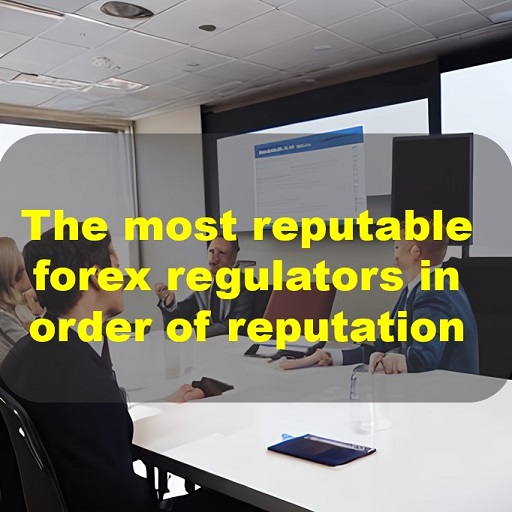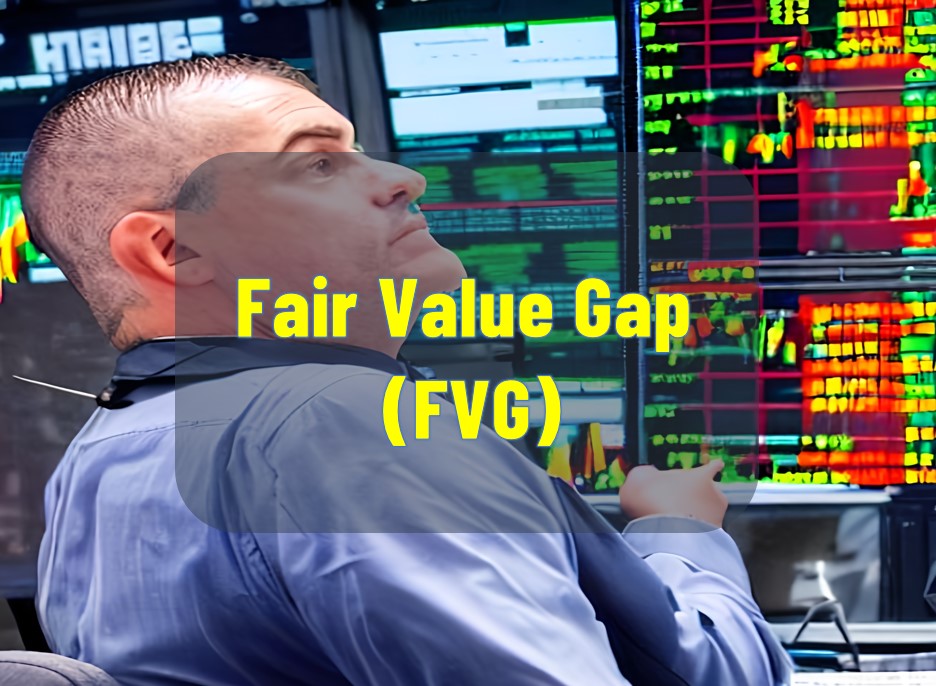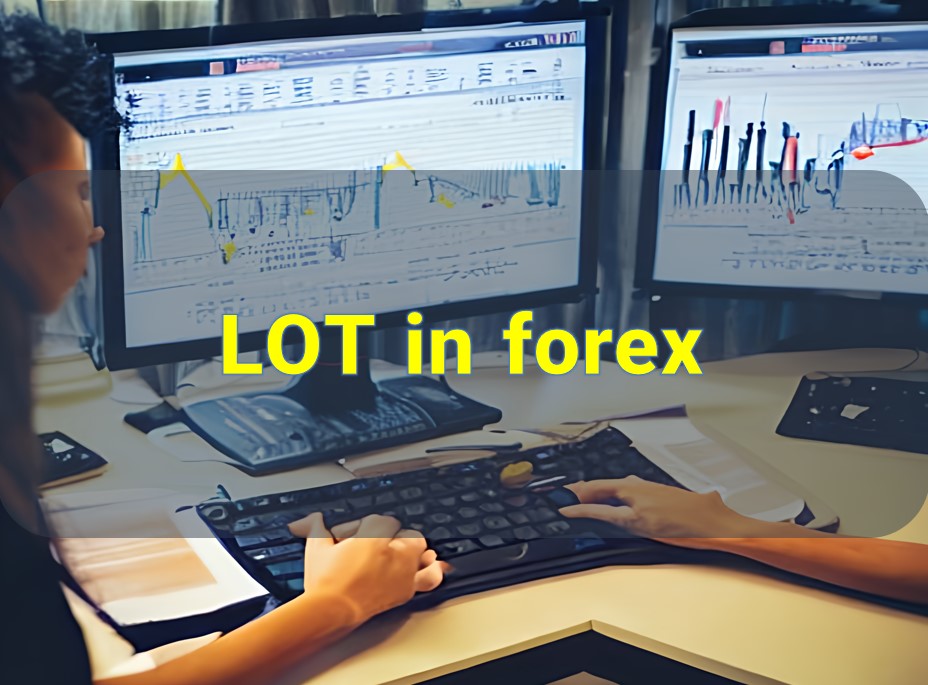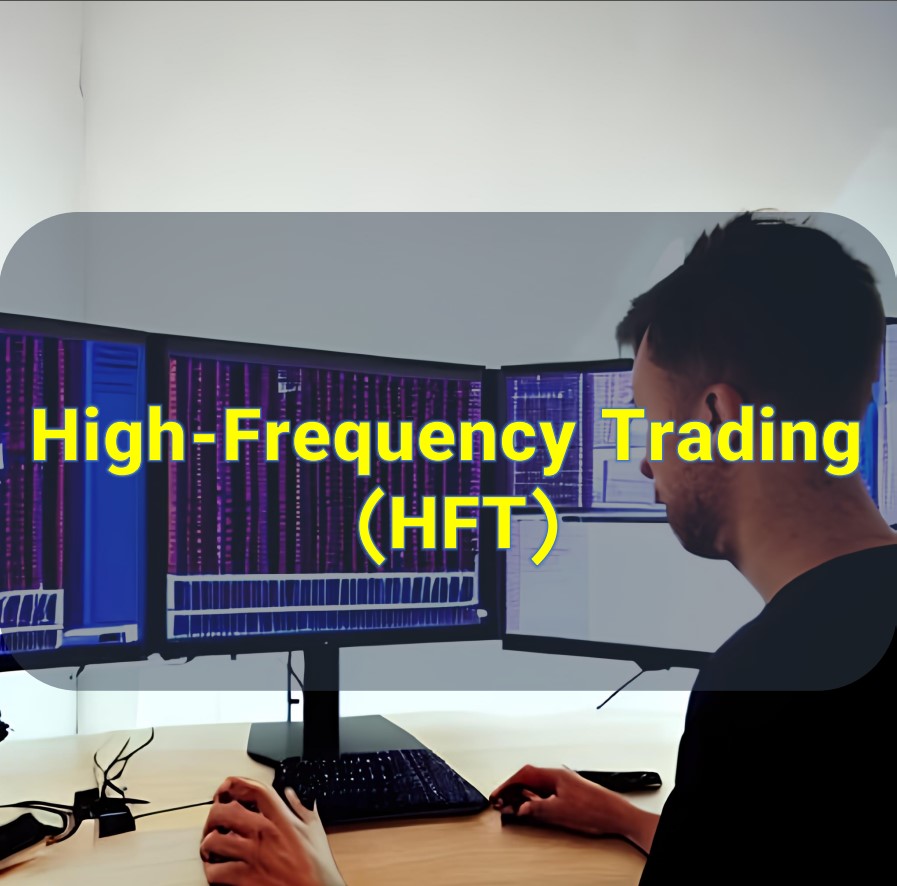The most reputable forex regulators – When it comes to reputable forex regulators, it’s important to note that the perception of reputation can vary based on individual perspectives and experiences. However, the following regulatory bodies are widely recognized for their stringent regulatory frameworks and enforcement efforts in the forex industry:
United States – Commodity Futures Trading Commission (CFTC) and National Futures Association (NFA)
The CFTC is a federal agency responsible for regulating commodity futures and options markets in the United States. The NFA is a self-regulatory organization overseeing forex dealers and brokers in the country. These two bodies are highly regarded for their comprehensive regulations and investor protection measures.
United Kingdom – Financial Conduct Authority (FCA)
The FCA is the regulatory authority responsible for overseeing financial markets in the United Kingdom, including the forex industry. The FCA is known for its strict regulations and stringent enforcement actions against non-compliant firms. Many forex brokers consider a license from the FCA as a mark of credibility.
Switzerland – Swiss Financial Market Supervisory Authority (FINMA)
FINMA is the regulatory body responsible for supervising and regulating financial markets in Switzerland. Swiss regulations are highly regarded for their focus on investor protection and stability. Forex brokers operating under FINMA oversight are generally considered trustworthy.
Australia – Australian Securities and Investments Commission (ASIC)
ASIC is Australia’s regulatory body responsible for overseeing financial markets, including the forex industry. ASIC has a reputation for its strong regulatory framework and proactive enforcement actions. Brokers regulated by ASIC are generally seen as trustworthy due to the stringent standards they must meet.
Japan – Financial Services Agency (FSA) and Securities and Exchange Surveillance Commission (SESC)
The FSA and SESC jointly regulate the financial markets in Japan, including forex trading. Japan has one of the most developed forex markets globally, and its regulatory bodies are known for their strict standards and investor protection measures.
Cyprus – Cyprus Securities and Exchange Commission (CySEC)
CySEC is the regulatory authority for investment services firms in Cyprus. It is a popular choice for forex brokers due to its relatively low-cost licensing process. While CySEC has improved its regulatory framework over the years, there have been some concerns about the effectiveness of its supervision.
Singapore – Monetary Authority of Singapore (MAS)
The MAS is the central bank and regulatory authority of Singapore. It regulates various financial sectors, including forex trading. The MAS is known for its robust regulatory framework, strict licensing requirements, and commitment to maintaining the integrity and stability of Singapore’s financial system.
Canada – Investment Industry Regulatory Organization of Canada (IIROC)
The IIROC is the regulatory organization overseeing investment dealers and trading activity in Canada, including forex brokers. It establishes and enforces high-quality regulatory and investment industry standards, focusing on investor protection and market integrity.
Germany – Federal Financial Supervisory Authority (BaFin)
BaFin is Germany’s financial supervisory authority responsible for regulating banks, financial services providers, and other financial institutions, including forex brokers. BaFin’s regulations are known for their strictness and commitment to protecting investors’ interests.
New Zealand – Financial Markets Authority (FMA)
The FMA is the regulatory body overseeing financial markets and services in New Zealand, including forex trading. It is responsible for licensing and regulating financial service providers, promoting fair and transparent financial markets, and ensuring investor protection.
France – Autorité des Marchés Financiers (AMF)
The AMF is the regulatory authority responsible for overseeing financial markets in France. It supervises investment firms, including forex brokers, and ensures compliance with regulations, investor protection, and market integrity.
Hong Kong – Securities and Futures Commission (SFC)
The SFC is the regulatory authority responsible for overseeing the securities and futures markets in Hong Kong, including forex trading. The SFC sets regulatory standards, issues licenses, and monitors compliance to protect investors and maintain market stability.
Sweden – Swedish Financial Supervisory Authority (Finansinspektionen)
The Swedish Financial Supervisory Authority is responsible for overseeing financial markets in Sweden, including forex trading. It focuses on ensuring the stability and integrity of the financial system and protecting investors’ interests.
South Africa – Financial Sector Conduct Authority (FSCA)
The FSCA is the regulatory authority for the financial services industry in South Africa, including forex brokers. It aims to promote fair and transparent financial markets, protect consumers, and maintain market integrity.
United Arab Emirates – Dubai Financial Services Authority (DFSA)
The DFSA is the regulatory authority responsible for overseeing financial services in the Dubai International Financial Centre (DIFC). It sets and enforces high regulatory standards for financial institutions, including forex brokers, operating within the DIFC.
Luxembourg – Commission de Surveillance du Secteur Financier (CSSF)
The CSSF is the regulatory authority responsible for supervising the financial sector in Luxembourg. It regulates and licenses financial service providers, including forex brokers, and ensures compliance with applicable laws and regulations.
Isle of Man – Isle of Man Financial Services Authority (IOMFSA)
The IOMFSA is the regulatory authority responsible for financial services in the Isle of Man. It supervises and licenses financial institutions, including forex brokers, operating in the jurisdiction.
Malta – Malta Financial Services Authority (MFSA)
The MFSA is the single regulatory authority for financial services in Malta. It oversees the licensing and supervision of financial service providers, including forex brokers, to ensure the integrity and stability of the Maltese financial system.
Ireland – Central Bank of Ireland (CBI)
The CBI is responsible for regulating financial institutions and markets in Ireland, including forex brokers. It ensures the stability and integrity of the Irish financial system and promotes investor protection.
Cyprus – European Securities and Markets Authority (ESMA)
Although Cyprus has its own regulatory body (CySEC), it is worth mentioning ESMA, which is the European Union’s regulatory authority overseeing securities and markets. ESMA plays a significant role in harmonizing regulations across EU member states and ensuring investor protection in the forex industry.
Gibraltar – Gibraltar Financial Services Commission (GFSC)
The GFSC is the regulatory authority for financial services in Gibraltar. It oversees and licenses financial institutions, including forex brokers, and ensures compliance with regulatory standards and investor protection.
Mauritius – Financial Services Commission (FSC Mauritius)
The FSC Mauritius is responsible for regulating and supervising non-bank financial institutions, including forex brokers, in Mauritius. It aims to promote the growth and development of the financial services sector while ensuring investor protection and maintaining market integrity.
Cayman Islands – Cayman Islands Monetary Authority (CIMA)
CIMA is the regulatory authority responsible for the supervision and regulation of financial services in the Cayman Islands. It oversees the licensing and supervision of financial institutions, including forex brokers, operating in the jurisdiction.
British Virgin Islands – British Virgin Islands Financial Services Commission (BVI FSC)
The BVI FSC is the regulatory authority responsible for financial services in the British Virgin Islands. It regulates and licenses financial institutions, including forex brokers, to ensure compliance with regulatory standards and protect the interests of investors.
Netherlands – Netherlands Authority for the Financial Markets (AFM)
The AFM is the regulatory authority responsible for overseeing financial markets in the Netherlands. It regulates and supervises financial institutions, including forex brokers, to ensure compliance with regulations and protect investors’ interests.
Denmark – Danish Financial Supervisory Authority (DFSA)
The DFSA is the regulatory authority responsible for supervising financial markets in Denmark. It focuses on maintaining the stability and integrity of the Danish financial system and protecting investors.
Spain – National Securities Market Commission (CNMV)
The CNMV is the regulatory authority overseeing securities markets in Spain, including forex trading. It ensures the transparency, efficiency, and proper functioning of the Spanish financial markets and promotes investor protection.
Norway – Financial Supervisory Authority of Norway (Finanstilsynet)
Finanstilsynet is the regulatory authority responsible for overseeing financial markets and institutions in Norway. It supervises financial intermediaries, including forex brokers, and promotes the stability and integrity of the Norwegian financial system.
Sweden – Swedish Securities Markets Association (SMP)
The SMP is a self-regulatory organization that supervises and regulates the securities market in Sweden. It sets high standards for market participants, including forex brokers, and ensures compliance with regulations and ethical conduct.
Bahamas – Securities Commission of The Bahamas (SCB)
The SCB is the regulatory authority responsible for overseeing the securities industry in the Bahamas. It regulates and licenses financial institutions, including forex brokers, to ensure investor protection and market integrity.
Italy – Commissione Nazionale per le Società e la Borsa (CONSOB)
CONSOB is the regulatory authority responsible for overseeing the Italian securities market, including forex trading. It promotes transparency, fairness, and efficiency in the financial markets while protecting investors’ interests.
Finland – Financial Supervisory Authority (FIN-FSA)
The FIN-FSA is the regulatory authority responsible for supervising and regulating the Finnish financial markets, including forex brokers. It ensures compliance with regulations and promotes stability and transparency in the financial system.
Austria – Financial Market Authority (FMA)
The FMA is the regulatory authority responsible for supervising and regulating the Austrian financial markets. It ensures the integrity, stability, and transparency of the financial system and protects the interests of investors.
Poland – Polish Financial Supervision Authority (KNF)
The KNF is the regulatory authority responsible for supervising and regulating the Polish financial markets, including forex trading. It focuses on maintaining the stability and security of the financial system and protecting investors’ interests.
Portugal – Portuguese Securities Market Commission (CMVM)
The CMVM is the regulatory authority responsible for supervising and regulating the Portuguese securities market, including forex brokers. It ensures transparency, integrity, and proper functioning of the financial markets in Portugal.
Russia – Central Bank of Russia (CBR)
The CBR is the regulatory authority responsible for overseeing the Russian financial system, including forex trading. It sets regulations, issues licenses, and monitors financial institutions to ensure compliance and protect investors.
South Korea – Financial Supervisory Service (FSS)
The FSS is the regulatory authority responsible for supervising and regulating the financial markets in South Korea, including forex trading. It focuses on maintaining the stability and integrity of the financial system and protecting investors.
It’s important to note that the reputation of regulatory bodies can evolve over time, and it’s advisable to stay updated on the latest developments and regulatory changes. Additionally, conducting thorough research and considering multiple factors when choosing a forex broker is essential for making an informed decision.







